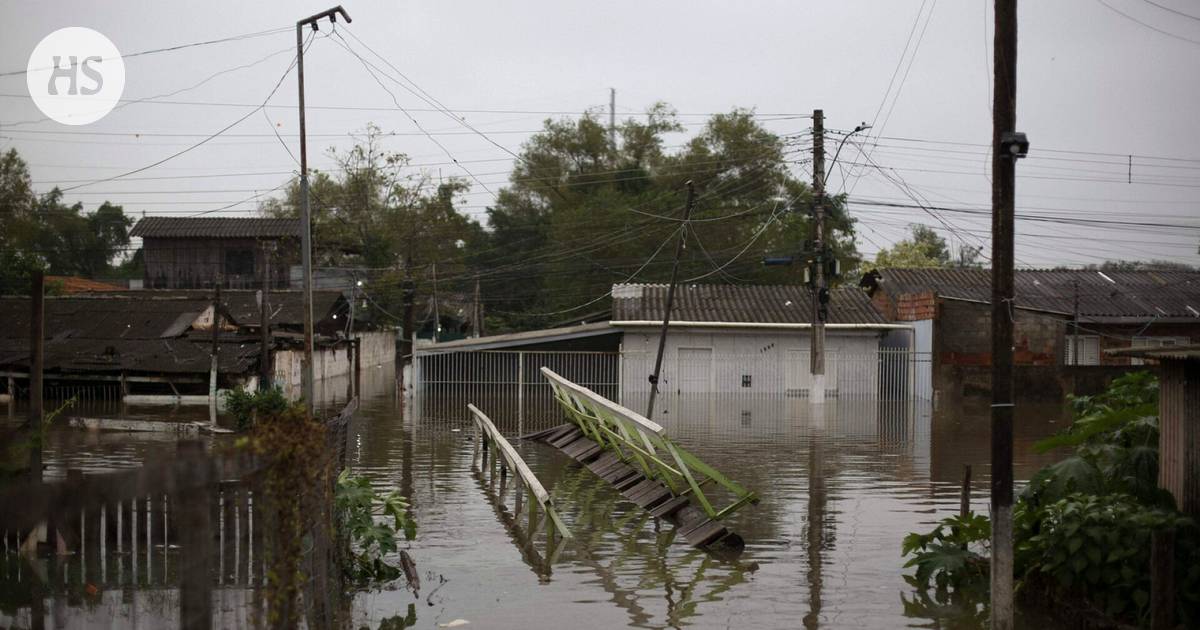
Devastation in Brazil’s South: Millions Without Clean Water, Thousands Displaced by Floods and Mudslides
In Brazil’s southern region, over a million people are without access to clean drinking water due to floods, mudslides and heavy rainfall. Nearly 90,000 individuals have been forced to evacuate their homes as a result of these disasters. Tragically, at least 70 people have lost their lives and more than a hundred are reported missing.
Evacuees have been relocated to shelters established in various facilities such as sports centers and schools. However, two people lost their lives in an explosion at a flooded gas station in Porto Alegre, the capital of Rio Grande do Sul. As the floods continue, water levels are expected to rise even further in the area on Monday.
In Porto Alegre, where the population is 1.4 million, 70% of the city is without clean water due to overwhelmed water surfaces and strained dams. Residential areas have been submerged by masses of water that has eroded roads and destroyed bridges, leaving locals stranded on rooftops waiting for rescue. Canoes and small boats are being used to navigate the streets that have become flooded canals.
The flooding has affected not only Porto Alegre but also more than 300 other cities and villages in the region. Governor Eduardo Leite of Rio Grande do Sul emphasized the need for substantial investments in post-disaster reconstruction efforts. The Porto Alegre International Airport has halted all flights indefinitely due to the devastation caused by these storms.
Environmental scientists attribute these destructive storms to global warming and the El Niño weather phenomenon. Brazil has experienced a series of severe weather events in recent months including a cyclone in September that resulted in the deaths of at least 31 individuals. The country must now focus on recovery and rebuilding efforts to address the aftermath of these natural disasters.
In conclusion, Brazil’s southern region is facing one of its worst crises due to severe weather events resulting from climate change impacts such as global warming and El Niño weather phenomenon. The devastation has led millions without access to clean drinking water while hundreds have lost their lives or gone missing with no hope for rescue yet.
